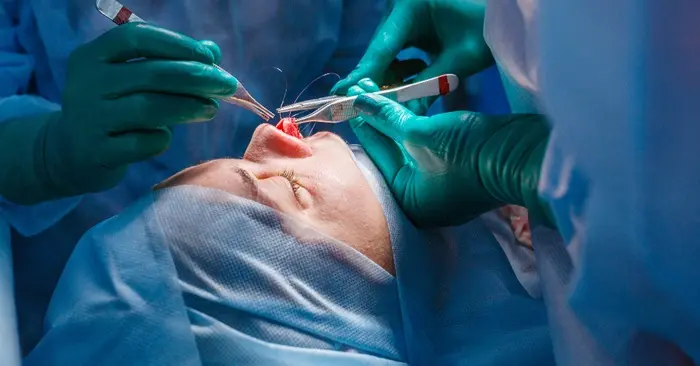Rhinoplasty, commonly known as a nose job, is a surgical procedure designed to reshape the nose. While most patients undergo rhinoplasty for aesthetic reasons, others seek it for functional improvements, such as correcting breathing issues. One question that often arises is whether rhinoplasty can change a person’s voice. This article explores this concern, delving into the anatomical, physiological, and psychological aspects of voice production in relation to rhinoplasty.
Understanding Rhinoplasty
Rhinoplasty involves modifying the bone, cartilage, and soft tissues of the nose. The changes can be subtle or significant, depending on the patient’s needs and the surgeon’s approach. There are two primary types of rhinoplasty: open and closed. Open rhinoplasty involves a small incision on the columella, while closed rhinoplasty entails incisions within the nostrils. Both methods aim to achieve the desired shape and function of the nose.
Anatomy of the Nose and Voice Production
Nasal Structure and Function
The nose plays a crucial role in respiration, filtration of air, and olfaction. It also contributes to the resonance of the voice. The nasal cavity acts as a resonating chamber, affecting the quality and timbre of the voice. Any alteration in the structure of the nose can potentially impact its function and, consequently, the voice.
Voice Production Mechanism
Voice production involves the coordinated effort of the respiratory system, the larynx (voice box), and the vocal tract. The vocal folds within the larynx vibrate to produce sound, which is then modified by the vocal tract, including the throat, mouth, and nasal passages. The nasal cavity’s shape and size can influence the resonance and quality of the sound produced.
See Also: Will Rhinoplasty Change Your Voice?
Potential Impact of Rhinoplasty on Voice
Changes in Nasal Resonance
Nasal resonance refers to the amplification and modification of sound waves as they pass through the nasal cavity. Rhinoplasty can alter the nasal cavity’s dimensions, potentially affecting the resonance. For example, reducing the size of the nasal cavity might decrease nasal resonance, resulting in a voice that sounds less nasal. Conversely, increasing the size could enhance nasal resonance.
Effect on Breathing Patterns
Post-operative changes in breathing patterns can also impact voice production. Rhinoplasty aimed at improving nasal airflow can enhance vocal quality by allowing for better breath control and support. However, temporary swelling and congestion post-surgery might negatively affect breathing and, subsequently, the voice. These effects are usually transient and resolve as healing progresses.
Studies on Rhinoplasty and Voice Changes
Several studies have investigated the impact of rhinoplasty on voice. Research generally indicates that while some patients report subtle changes in their voice, these changes are not significant enough to affect daily communication. For instance, a study published in the “Journal of Voice” found that while rhinoplasty can alter nasal resonance, these changes are typically minor and not perceptible to untrained listeners.
Subjective vs. Objective Voice Changes
Subjective Perception
Patients’ perceptions of voice changes can be influenced by psychological factors. The awareness of undergoing surgery might heighten sensitivity to perceived changes in voice quality. Some patients might feel that their voice has changed due to the heightened focus on their nasal area post-surgery.
Objective Measurements
Objective measurements, such as acoustic analysis and voice recordings, are used to assess voice changes scientifically. These tools can detect subtle changes in pitch, tone, and resonance that might not be noticeable subjectively. Studies using these methods have generally shown minimal objective changes in voice post-rhinoplasty.
Factors Influencing Voice Changes
Extent of Nasal Modification
The degree of structural modification during rhinoplasty plays a crucial role in determining any potential voice changes. More extensive alterations, such as significant reduction or augmentation of nasal structures, are more likely to impact nasal resonance.
Pre-existing Voice Characteristics
Individuals with a voice that heavily relies on nasal resonance might notice changes more than those whose voice relies less on it. Singers, actors, and individuals whose profession depends on their voice might be more attuned to even minor changes.
Surgical Technique
The surgeon’s technique and experience can influence the outcome of rhinoplasty, including its impact on the voice. Precision in maintaining the balance between aesthetic improvement and functional preservation is key to minimizing any adverse effects on the voice.
Managing Potential Voice Changes
Pre-operative Consultation
A thorough pre-operative consultation with a qualified surgeon is essential. Patients should discuss their concerns about potential voice changes and understand the risks and benefits of the procedure. Surgeons can provide realistic expectations and address any specific vocal concerns, especially for professional voice users.
Post-operative Care
Proper post-operative care is crucial for optimal healing and minimizing complications. Patients should follow their surgeon’s instructions regarding nasal care, breathing exercises, and voice rest. Swelling and congestion are common post-surgery and usually resolve within a few weeks to months.
Voice Therapy
For individuals experiencing noticeable voice changes post-rhinoplasty, voice therapy with a speech-language pathologist can be beneficial. Voice therapy can help patients adapt to any changes in resonance and improve overall vocal quality.
Conclusion
While rhinoplasty can potentially affect the voice by altering nasal resonance and breathing patterns, the changes are typically minor and not perceptible to most people. Objective studies and acoustic analyses support this, showing minimal significant changes in voice quality post-surgery. However, individual experiences may vary, and psychological factors can influence subjective perceptions of voice changes.
Patients considering rhinoplasty should discuss their concerns with a qualified surgeon and have realistic expectations about the procedure’s outcomes. Proper pre-operative consultation, surgical technique, and post-operative care can help minimize any potential impact on the voice, ensuring both aesthetic and functional satisfaction.

